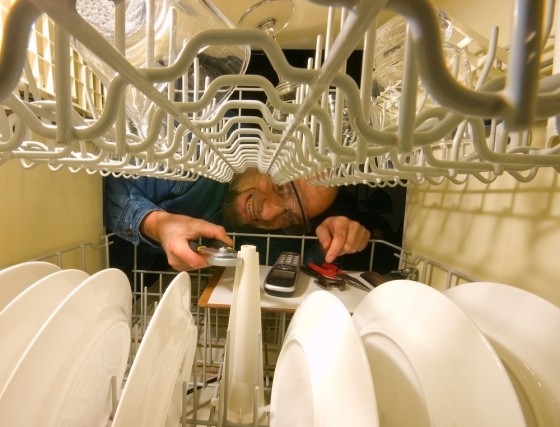It may keep your produce and leftovers cool, but is it heating the planet while it does?
If your refrigerator is an older model, it could very well be harming the environment. Inefficient kitchen appliances such as refrigerators, microwaves, stoves, and dishwashers can contribute to climate change.
The good news is that advancements in eco-conscious kitchen appliance packages can save you money while saving the planet.
If you’ve thought that your last-century kitchen could use a facelift, now’s the perfect time to kill two birds with one stone. By updating your kitchen, you can refresh your interior design, save on your monthly energy bill, and help the environment. If you’re still on the fence about an icebox swap, here are five negative impacts your kitchen appliances could have on the environment.
Plastic breakdowns in the microwave
Microwaves use electromagnetic radiation to heat your food. Though this small appliance is perfect for reheating leftovers, it can be harmful if you let it break down over time. The metal webbing on the door protects you from radiation, but if your microwave starts falling apart or doesn’t close properly anymore, the waves could leech into your home.
Additionally, certain types of plastics can leech hormone-altering chemicals into your food if microwaved. Don’t sacrifice your health for convenience; replace any broken-down appliances immediately.
Energy usage
Residential energy use accounts for at least twenty percent of greenhouse gas emissions in the United States. Aged kitchen appliances aren’t only out of style – they’re also energy and water gluttons that contribute to the world’s climate crisis.
Replacing old energy-hogging appliances can reduce your electricity usage, making a big difference in your energy costs and environmental impact. Choosing an energy-efficient refrigerator and the right size appliances for your household can help lessen your carbon footprint.
If you want to go the extra mile, you can buy an Energy Star-rated appliance for a reduction in your monthly usage. This swap slashes your carbon footprint by 8,200 pounds over five years, which is like driving 9,300 fewer miles in your car.
Water usage
A standard dishwasher can use over five thousand gallons of water per year, not to mention the electricity needed to heat the water and power the machine.
Luckily, today’s dishwashers are more water and energy-efficient than they were twenty years ago. Energy Star dishwashers must use 4.25 gallons of water or less per cycle, while dishwashers manufactured before the mid-1990s use more than 10 gallons of water each cycle. Updating your dishwasher will save water since newer models use less water than doing dishes by hand.
Refrigerator coolant and emissions
The business of keeping things cool may be heating the planet. The cooling industry–everything from refrigerators to air conditioners–is responsible for up to ten percent of global emissions. Though environmental organizations are cracking down on harmful coolant chemicals, the energy and chemical pollutants from coolers are hard to ignore.
Manufacturing & disposal
Like any manufacturing industry, appliance manufacturing is responsible for its share of air pollution and carbon emissions. Precious metals used in higher-quality appliances can also cause ethical and environmental concerns depending on how they’re mined.
The disposal of older appliances lands hundreds of tons of metal in landfills annually. Though eco-friendly swaps are always a good idea, you also shouldn’t replace your devices on a whim, as this contributes to landfill overload.
Wrap up
Replacing inefficient appliances with an energy-efficient kitchen appliance package is the easiest and most cost-effective way to update your kitchen while reducing your home’s carbon footprint.




